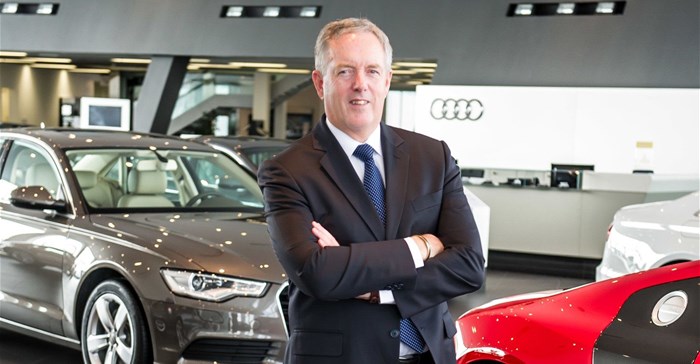
A South African roadmap to premium electric mobility

Competition in the premium automotive market is fierce but there is an elephant in the room. The demand we create for alternative mobility technologies (be it fully electric or hybrid) brings with it a very real infrastructure gap.
Not addressing this today will, unfortunately, prevent any meaningful ability for the local automotive sector to competitively participate in global trends. Doing this right would mean that we can deliver on local customer demand while still operating globally as a competitive automotive investment destination.
There is a firm reality; staying ahead of the pack means constantly innovating current technologies that, to a large degree, progress the automotive segment as a whole.
The downstream benefit of product innovation is clear, but it cannot be the job of the automotive industry alone.
In the premium segment where the desire to drive ahead of the curve is expected, the introduction of new technologies around electrification and artificial intelligence creates real opportunity.
What the South African automotive segment does not need is potential. What it does need is a practical and inclusive plan that supports the growth needed – and more importantly, enables both education and adoption for a new world of mobility.Five key focus areas
To overcome the chicken and egg conundrum we suggest five key focus areas:
- We need increased investment in building an infrastructure footprint that actually supports alternative mobility solutions: The automotive industry, in partnership with government and other industry partners, must fuel the development and implementation of charging stations around the country.
- We need a deliberate product roadmap matched to our infrastructure reality: Electrification won't happen overnight, so we need to build a roadmap that accommodates hybrid vehicles and that can accommodate any future shifts to fully electric vehicles as and when new technology is phased in.
- We need a policy environment that makes good sense and enables the product and infrastructure needs: Currently, import duties on electric vehicles are high. Electric vehicles get charged a duty of around 25%, while conventional vehicle imports get charged 18%. Additionally, an ad valorem tax, which is usually charged on luxury items, is also applied to electric vehicles. So the tax on electric vehicle imports stands at about 42% in total. Government needs to look at this policy and reduce import taxes to make the future of mobility less expensive.
- We need to increase the size of the pie: A clear and consistent growth plan creates a more stable business environment and more importantly, stabilises the currency fluctuation impact on the rand: Currently, the rand is the strongest it has been in two years. This is attributed to improvements in overall confidence because of increased political stability. However, what is concerning is the longevity of this stability and the resulting impact on the business environment.
- We need to make sure that we bring our customers and dealer partners on the journey with us: Education of customers and dealer partners is key. If a consumer doesn't understand what an electric vehicle is, they won't buy it, even if they have the means. However, if they are educated about the positive impact such vehicles have on the environment, issues of versatility, power output and the technology behind it; then they are more likely to purchase the vehicle. We appreciate that any investment in alternative mobility solutions must be geared towards the end users of these solutions. What is important to understand is that consumers buy electric vehicles for different reasons.
For some, it’s a lifestyle choice, wanting to drive green, clean mobility. While other consumers buy electric vehicles to make a statement. Given the environmental benefits, the latter group sees the technology representing cutting-edge innovation and they want to be at forefront of this. Customers also need the assurance and the necessary education to dispel any belief that electric vehicles lose the credibility and lack the quality of existing internal combustion engines.
Also, a key credibility factor for a more future-forward mobility offering is the pace of infrastructure investment that our dealer partners would need to embark on in order to undeniably accelerate the adoption of alternative mobility. As a direct importer, we need to invest time and effort to ensure that our dealer partners are willing and able to move their businesses in this direction.
So the roadmap is clear. Electric mobility means merging the demands of sustainability, everyday usability and performance. This implies integrating current technologies to advance what are often still seen as concept vehicles to cater for consumers in the premium market. It does also mean that parallel investments in infrastructure are needed, especially if we are to cater for the anticipated leapfrog in product lineups.

Globally, Audi has made significant investments in driving progress towards alternative mobility solutions. This has seen investments in both technology and human capital to make advances in areas such as e-fuel, battery life, range, speed, general performance and aesthetic design.
With this in mind, from 2025 all Audi models will have an electrified drive. In the long-term, we plan to set the trend for the premium market, aiming to leverage and combine all of our technologies to reduce the emissions figures and develop sustainable, intelligent electro-mobility concepts.
Driving progress around innovation is a key aspect of our own DNA. Audi has an impressive track record for integrating benchmark technology into our vehicles.
However, before complete electrified vehicle fleets are built, we need to ensure that we get a buy-in from government to invest in electric vehicles by showing the economic, environmental and social upliftment that these vehicles will bring to South Africa.Development is as dynamic as the automotive sector. Once we show the need to introduce electric vehicles into the premium market for those who can afford it, we can focus on developing other areas - recycling batteries; developing battery options with superior charging performance; investigating renewable energy sources such as wind and solar, just to name a few.
The future is exciting and it’s more than evident that electric vehicles will benefit South Africans at large.
About Trevor Hill
View my profile and articles...

